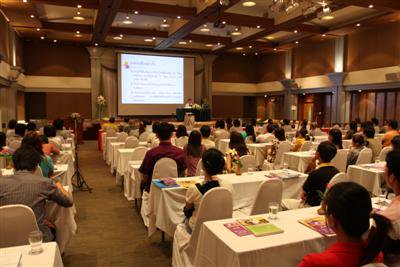85 confirmed chikungunya cases in Phuket

PHUKET CITY: The Phuket Public Health Office (PPHO) has set up a “war room” to halt the spread of the viral disease chikungunya, which now has 85 confirmed cases in Phuket alone.
The war room, which will host regular meetings on Tuesdays and Thursdays, is also tasked with monitoring flu patients to see if there are any cases of infection with the Type A(H1N1) virus that causes swine flu.
The PPHO has 85 reported chikungunya patients being treated in Phuket hospitals, 82 Thais and three Burmese.
Areas with reported cases include tambons Srisoonthorn and Cherng Talay in Thalang district, Kamala and Kathu town in Kathu district, and Rawai and Phuket City in Muang district.
PPHO officials expect the actual number of cases to be more than 1,000, as most sufferers do not seek hospital treatment but rather go to clinics or treat themselves.
An officer with the PPHO’s Department of Disease Control (DDC) told the Gazette chikunguya can spread very fast under the right conditions, especially in rubber plantation areas infested with the Aedes mosquito that spreads the disease from one victim to the next.
Unlike many other viral diseases, chikungunya symptoms appear almost immediately after exposure.
Symptoms include an initial period of fever typically lasting four days, followed by a much longer period of aching pain, especially in joints.
Authorities suggest limiting expose to mosquitoes by pouring out water containers in which Aedes larva can grow, using mosquito repellents and keeping the skin covered when outdoors.
The PPHO is asking for cooperation from local pharmacies in reporting cases of possible chikungunya infection among customers.
PPHO Director Dr Pongsawas Ratanasang told the Gazette his office will launch its latest “war on mosquitoes” with a campaign set to begin on May 27.
Nationally, the chikungunya epidemic has now spread to Isarn, with 13 patients detected in Srisaket, Ubon Ratchathani and Amnat Charoen, Disease Control Office 7 chief Dr Sarayuth Uttamangkhapong said yesterday.
The disease was likely spread there by soldiers and rubber tappers from those regions working in the Deep South who then returned home.
In a related development, since the installation of thermal scanners at Phuket International Airport more than 50,000 passengers have passed through the high-tech device.
Thus far there has only been one suspected case of swine flu, which turned out to be a case of normal influenza.
— Khunakorn Terdkiatkhachorn
Latest Thailand News
Follow The Thaiger on Google News:


























